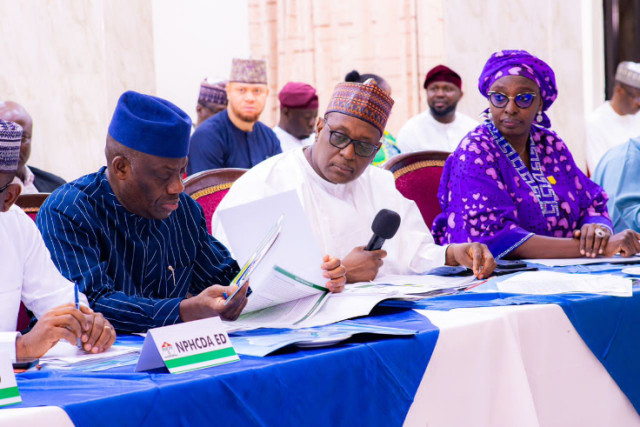The Federal Government has approved the disbursement of N12.911bn to the National Health Insurance Authority, the National Primary Healthcare Development Agency, the Nigeria Centre for Disease Control and Prevention, and the National Emergency Medical Service and Ambulance System.
The approval was done at the eighth meeting of the Ministerial Oversight Committee of the Basic Health Care Provision Fund (BHCPF) in Abuja.
The approval was sequence to the current BHCPF guidelines for the fourth quarter of 2024.
The MOC of the BHCPF responsibilities hinged on the effective implementation, transparency, and accountability of the fund as well as overseeing of the BHCPF’s strategic direction, monitors fund disbursement, and ensures alignment among the four gateways: NHIA, NPHCDA, NEMSAS, and NCDC.
The approval is, “In alignment with Nigeria’s Health Sector Renewal Initiative and President Bola Ahmed Tinubu’s endorsement of a Sector-Wide Approach, significant reforms of the BHCPF have been initiated. These reforms, led by a sub-committee established during the 5th MOC meeting in 2023, include an ongoing review of the BHCPF guidelines, operational architecture reforms, and strengthening governance structures.
“The eighth MOC meeting presented memos for the adoption of the revised BHCPF 2.0 Guidelines, the accountability framework, and the disbursement of funds for the fourth quarter of the 2023 financial year.
“The MOC approved N12.911bn for disbursement to NHIA, NPHCDA, NCDC, and NEMSAS for the fourth quarter of 2024, based on the current BHCPF guidelines," the statement read.
It noted that a subcommittee, including representatives from State Social Health Insurance Agencies, the MOC Secretariat, NHIA, Chief Executive Officers, the World Health Organisation, and State Primary Health Care Development Agencies, will address delays in disbursement and report back within two weeks.
Speaking, the Coordinating Minister of Health and Social Welfare, Prof. Muhammad Pate, noted that the FG is making progress in improving the governance of the health sector and the population’s health outcomes.
“The integrated healthcare workers’ training is underway. We announced that we’ve reached 120,000 permanent health workers as part of the President’s initiative. 40,000 have already been trained, and more will be trained going forward. We are grappling with difficult challenges in a very complex sector, but we are making progress to improve population outcomes.
“Also, 2.4 million additional enrollees have been included in the Vulnerable Groups Fund over the last year, which means they can afford healthcare. Some states are doing well, while others are lagging behind, but we need to make healthcare services available to the people."




















